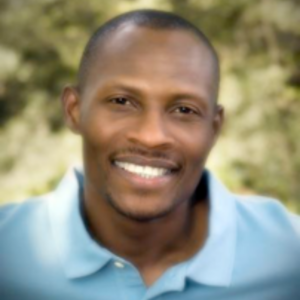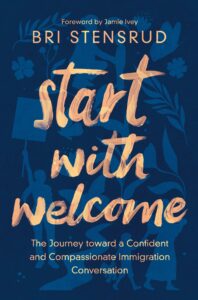We met Cara earlier this year in the Women of Welcome community. She shared the story with us of her late husband, Paul, an asylee from Cameroon.“His story showcases why someone would leave their home. It speaks to the reality of really hard things,” she said.
People ask, ‘Why would someone flee?’ This is why.“We can say what we want and vote the way we want, and those things are taken for granted. In other countries, those things are not taken for granted. Paul didn’t break any laws. He stood up for what is right because of his faith, and he was imprisoned and tortured for it.”
This is their story in her words:
There was an instant friendship between us. I was introduced to Paul at a Bible Study in 2006. He was from Cameroon, studied biomedical engineering, and loved the Lord. He invited me out for coffee, where we talked for two hours. He wanted to hear about my work abroad ministering to refugees, orphans, and women. I then asked him about Cameroon and what led him to come to America. At this, his beautiful, mega-watt smile flattened; I instantly knew that his answer would not be a simple one.
“I was granted asylum in 2002,” he started. The weight of that statement changed the tone of our discussion.
He explained how in 1960, Cameroon became independent from France and Britain. Instead of Francophones and Anglophones moving forward to build a united country, the minority Anglophones soon felt politically and economically marginalized, had their language minimalized, and their cultural differences ignored.

As an Anglophone, Paul felt these hardships but loved his country and the diversity of its people. Cameroon, he continued, was essentially a one-party state governed by a president who has held office since 1982. That’s right. The same president for nearly 40 years. Effectively, a majority French-speaking government dominates an English-speaking minority.
As a teenager, Paul was recruited to play in a prestigious traveling football (soccer) league, becoming a popular athlete who attracted fans and scouts, eventually landing a handsome contract to play professional football in France. However, a career-ending knee injury redirected his life in his late twenties. He returned to Limbe, his coastal hometown in Cameroon’s southwest region, where he enrolled in college and worked for a computer company.
Things at the computer company were not what they appeared. Paul was told his job was to draw up a census list using the company’s database. However, he soon realized the data was an illegal compilation of an electoral list for the ruling political party used to draw up a rigging strategy.
It was clear the data would be used to bribe and disenfranchise voters and issue multiple ballots and electoral cards so they could be used by supporters numerous times. When Paul went to his boss to confront the evidence, he was threatened never to speak out about the matter publicly. He resigned immediately and sought prayer with his family.
Despite his quiet nature and hesitancy to take action, Paul’s faith guided him to do the right thing. He bravely spoke to local administrators of the joint municipal and parliamentary elections, revealing the voter fraud. He and others from the computer company who spoke out were soon arrested for “participating in secessionist and opposition activities.” Paul would be arrested two more times and badly tortured before his family secretly put him on an airplane to the United States to seek asylum.

 Let’s have the conversation you’ve always wanted to have about immigration.
Let’s have the conversation you’ve always wanted to have about immigration.